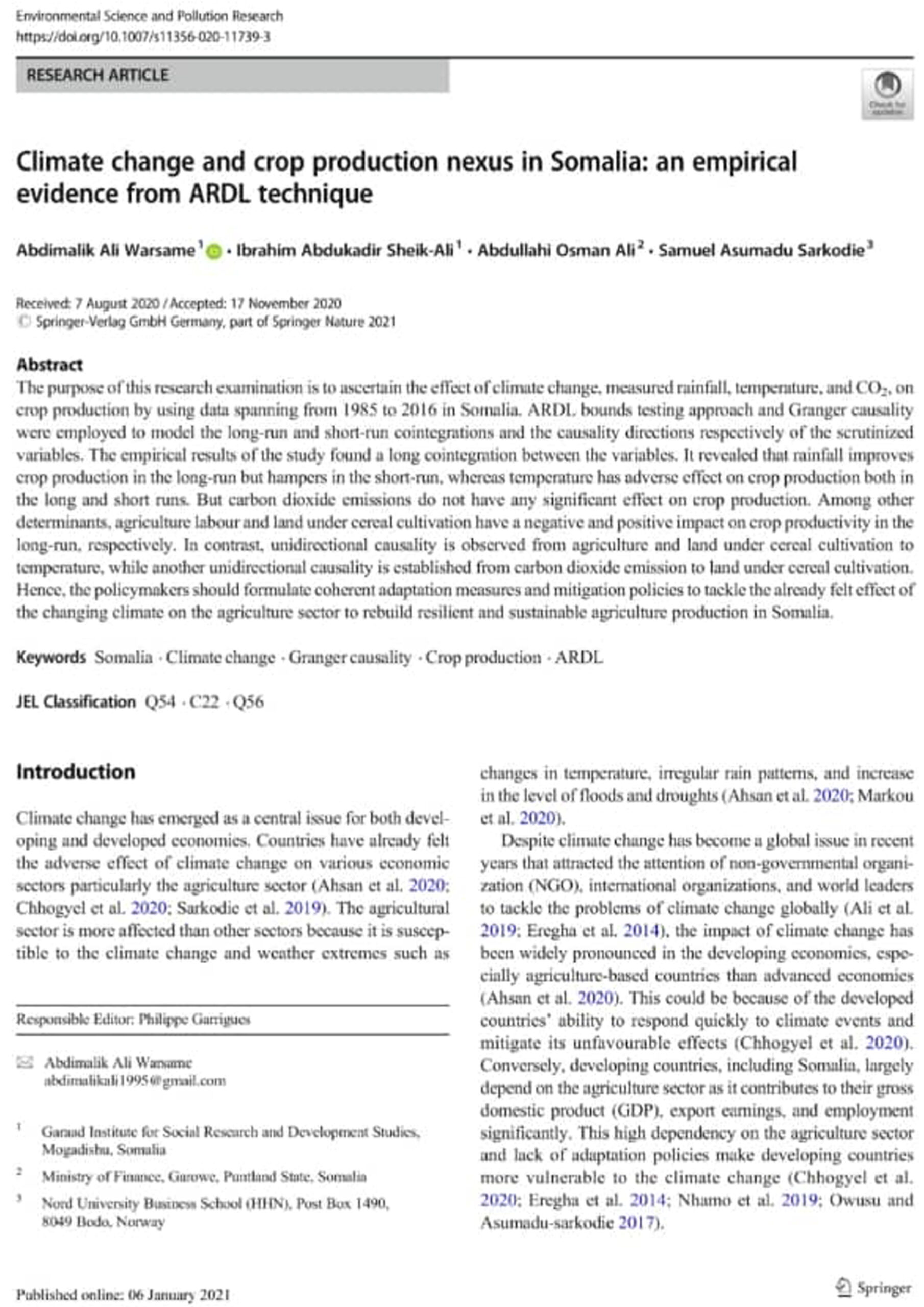
Climate change and crop production nexus in Somalia: an empirical evidence from ARDL technique
- Post by: admin
- May 26, 2022
- No Comment
Abstract
The purpose of this research examination is to ascertain the effect of climate change, measured rainfall, temperature, and CO2, on crop production by using data spanning from 1985 to 2016 in Somalia. ARDL bounds testing approach and Granger causality were employed to model the long-run and short-run cointegrations and the causality directions respectively of the scrutinized variables. The empirical results of the study found a long cointegration between the variables. It revealed that rainfall improves crop production in the long-run but hampers in the short-run, whereas temperature has adverse effect on crop production both in the long and short runs. But carbon dioxide emissions do not have any significant effect on crop production. Among other determinants, agriculture labour and land under cereal cultivation have a negative and positive impact on crop productivity in the long-run, respectively. In contrast, unidirectional causality is observed from agriculture and land under cereal cultivation to temperature, while another unidirectional causality is established from carbon dioxide emission to land under cereal cultivation. Hence, the policymakers should formulate coherent adaptation measures and mitigation policies to tackle the already felt effect of the changing climate on the agriculture sector to rebuild resilient and sustainable agriculture production in Somalia.
Data availability
The datasets used and/or analysed during the current study are available from the corresponding author on reasonable request.
